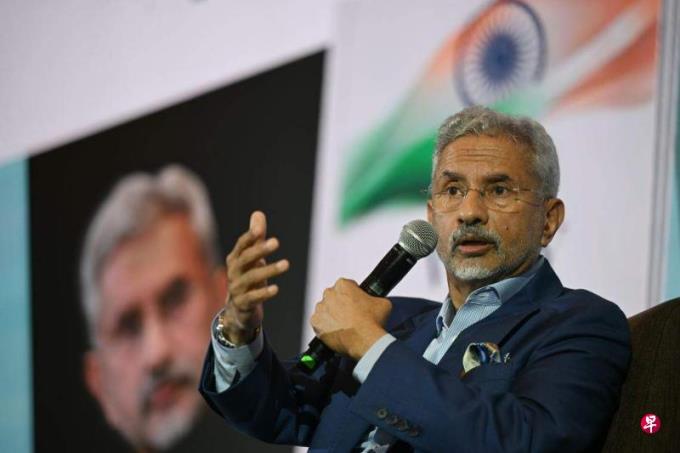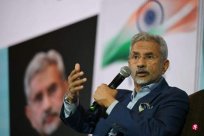
(Singapore News) India and China have recently burst into saliva due to border disputes. Indian Foreign Minister Su Jesheng, who is visiting Singapore, said that it is necessary for India to restore the stability of the border first, so that the relationship between the two countries can develop forward.
Indian Prime Minister Modi went to Arunechal (known as southern Tibet) in early March to attend a tunnel unveiling ceremony that caused the two countries to confront the two countries. Su Jiesheng responded for the first time.
He said that India is trying to find the "out of the way" that stabilizes the situation in a stable border."This is not easy. I have invested a lot of efforts with my (China) peers. At the military commander, at the diplomatic level, we have conducted more than 20 rounds of talks."
Su Jiesheng visited Singapore for three days from Saturday (March 23). During this period, he would meet with new prime ministers Li Xianlong and Vice Premier Huang Xuncai.He showed a lecture on Saturday at the Singapore National University South Asia Research Institute (ISAS) that the Indo -China territorial disputes could not be resolved in the short term, but the necessary first step was to find a way to recover the existence of the border "peace and tranquility of 45 years."" ".
The border of
India is 3,800 kilometers, and most of them are divided.In the 1975 border dispute, four Indian soldiers died.In order to prevent the upgrade of the situation, the two countries signed a number of bilateral agreements from 1993 to 2013; but this peace was broken in 2020. In the border combat that year, at least 20 Indian soldiers and four Chinese soldiers were killed.The relationship between the two countries has deteriorated.
The United States recently involved in this dispute.On March 20, the United States stated that Arunecchal, who had acknowledged controversy as Indian territory.China counterattacked the next day that Washington's move was to "serve its geopolitical and private interests."
In early March, there were media reports that India has sent 10,000 soldiers to defend the middle border.In the lecture on Saturday, the Straits Times reporter asked about it.
Su Jiesheng pointed out that before the situation of the disputed border is stable, it is not logical to expect the relationship between the two countries to move forward, because it will naturally cause huge distrust.
Su Jiesheng: The two countries should continue to work in the field of consensus
As China and India rose at the same time, Su Jiesheng said: "For me, how can we find a sustainable balance?" He believes that the two countries should continue to work hard in the field of consensus.
For him, the conflict of 2020 was that China not only did not "consolidate the foundation in order to obtain balance", but destroyed the balance without observing the agreement."From 1975 to 2020, no one was killed because of this. So for 45 years, it has been valid. Today we must ask ourselves, why is it that it does not work?"
He smiled and added: "The problem is not actually poor communication. I guarantee that their English is great, our Chinese is better!"
China believes that the conflict in 2020 is because the Indian party violates the consensus between the two sides and provokes unilaterally in the controversial Lawan Valley.
About 300 diplomats, scholars and Indian diaspora attended the lecture.In addition to India -China relations, Su Jiesheng also talked about the relationship between India and the United States, Russia, neighboring Pakistan.When it comes to Indian talent outflow issues, he called for a "modern way" to look at this problem, because Indians who live and work overseas actually helped India establish a relationship with other countries such as Singapore.




